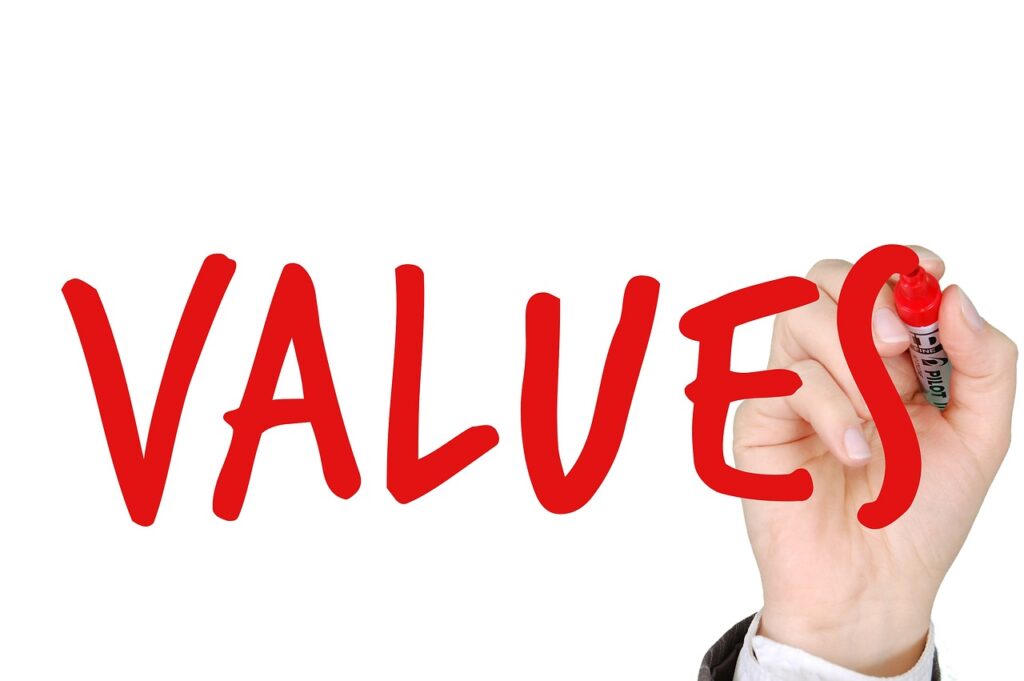Team culture refers to the shared values, attitudes, standards, and beliefs that characterize the nature of work and relationships within a team. It defines the unwritten rules that shape the team’s behavior, interactions, and overall functioning.
Team culture is a reflection of the organization’s culture but at a team level. It influences things like how team members communicate, collaborate, make decisions, and prioritize work. A positive team culture is key to creating a productive, high-performing team.
There are several benefits of building a strong team culture:
- Improves communication and collaboration. Open communication and transparency allow team members to work better together.
- Promotes innovation and creativity. When team members feel empowered in a positive culture, they are more likely to share ideas and think creatively.
- Increases job satisfaction. Team members are happier when they work in an environment built on mutual trust and respect.
- Boosts productivity and achievement. Aligning around shared goals and values motivates the team to work efficiently and meet objectives.
- Enhances loyalty and retention. Team members are less likely to leave when they feel valued and invested in the team’s success.
- Attracts top talent. A positive reputation for great team culture makes it easier to recruit skilled people.
- Provides a competitive advantage. Companies with great cultures are better positioned to adapt to change and innovate.
In summary, team culture has a big impact on team dynamics and performance. Establishing a healthy, collaborative culture should be a priority for any team leader looking to build a successful, thriving team.

Jump To Section
How to Build a Great Team Culture
Building a great team culture takes intention, effort, and commitment from leadership and team members. Here are some key steps for creating an effective team culture:
Establish Shared Values
Defining your team’s core values provides a foundation and shared sense of purpose. Identify 3-5 key values like integrity, excellence, respect, collaboration, etc. Discuss what they mean and how they should guide decisions and behaviors. Ensure they resonate with all team members.
Improve Communication
Open, frequent communication is vital for an effective team culture. Create regular opportunities for team discussions and feedback. Be transparent about goals, projects, and company news. Encourage team members to ask questions and share ideas. Actively listen and foster two-way dialogue.
Encourage Collaboration
Promote a spirit of cooperation over competition. Provide opportunities for brainstorming, collaborative projects, and group learning. Have team members assist and learn from each other. Reward collaborative achievements over individual ones.
Build Trust
Trust is essential for psychological safety and engagement. Admit mistakes openly, follow through on commitments, and avoid letting the team down. Get to know team members personally and show interest in their lives and careers. Lead with empathy, integrity, and compassion.
Celebrate Successes
Recognize both small wins and big achievements. Highlight team accomplishments in meetings and communications. Have rituals like team lunches or events to celebrate success. Show appreciation for hard work and dedication.

Define Your Team’s Core Values
Core values are the fundamental beliefs and guiding principles that define a team’s culture and identity. They represent what the team stands for and guide how team members interact, make decisions, and approach their work. Defining clear core values is crucial for building a strong team culture.
When team members align around shared values, it creates a sense of unity, purpose, and identity. Core values help provide direction when facing challenges, resolving conflicts, and making tough decisions. They shape the team’s priorities and standards for behavior.
Here are some tips for identifying your team’s core values:
- Brainstorm with team members to determine 3-5 values everyone agrees are most important. These may include integrity, excellence, respect, collaboration, innovation, etc.
- Consider your organization’s mission and existing values. Make sure the team’s core values align.
- Assess your current culture. What values are already demonstrated consistently in your team? Make those explicit.
- Reflect on past challenges or conflicts. What values would have guided the team to better solutions?
- Look ahead to future goals. What values will be most important for the team to uphold?
- Get feedback from team members on draft core values. Revise until there is consensus from everyone.
- Define what each value looks like in action. Provide examples of desired attitudes and behaviors.
- Communicate the final core values clearly. Display them prominently and refer back to them often.
Establishing shared core values provides a solid foundation for building a cohesive, principled team culture. Revisit them frequently to reinforce their importance and influence on the team’s work.
Improve Communication Within the Team
Communication is key to building an effective team culture. When team members can openly share ideas, give feedback, and discuss problems, it creates an environment of trust and collaboration.
Here are some tips for improving communication within your team:
- Establish open communication as a core value. Make it clear that team members should feel comfortable voicing concerns, asking questions, and sharing thoughts. Lead by example by being transparent and approachable.
- Create regular opportunities for team discussions. Hold weekly or monthly meetings for team members to connect. Encourage sharing progress updates, new ideas, and challenges.
- Provide feedback regularly. Don’t wait for formal reviews to give feedback. Praise good work frequently and address problems early before they escalate.
- Listen actively. When team members speak up, make sure to actively listen without interrupting. Seek to understand their perspective before responding.
- Encourage informal communication. Chat with team members regularly about non-work topics to build rapport. Simple things like virtual coffee breaks can go a long way.
- Address communication problems head-on. If communication breaks down, have an open discussion to get to the root of the issues. Find solutions together.
- Use collaboration tools. Take advantage of tools like Slack, Microsoft Teams, and Asana to encourage ongoing back-and-forth communication.
- Clarify expectations. Make sure team members understand communication protocols and expectations. For example, response time for emails or chats.
With open, frequent communication, team members will feel comfortable collaborating, sharing ideas, and voicing concerns. This transparency is essential for developing trust and an effective team culture.

Encourage Collaboration and Teamwork
Collaboration and teamwork are essential for building an effective team culture. When team members work together towards common goals, it improves productivity, innovation, and morale.
There are several ways to encourage collaboration within a team:
- Promote open communication – Create opportunities for team members to share ideas and provide feedback. Brainstorming sessions, regular team meetings, and digital collaboration tools can facilitate this.
- Foster inclusion – Make sure every team member feels heard and valued. Recognize contributions from introverts as well as extroverts.
- Organize team-building activities – Activities outside the office help team members bond and build trust. Some examples are volunteering events, outdoor adventures, escape rooms, cooking classes or sports.
- Establish cross-functional projects – Bring together team members from different departments to work on special projects. This allows them to gain new perspectives.
- Use collaboration tools – Tools like Slack, Trello, Asana, and Google Docs enable seamless collaboration for both in-office and remote teams.
- Promote mentorship and coaching – Pair junior team members with more experienced employees. This helps transfer knowledge across the organization.
When team members collaborate effectively, they develop strong working relationships and a shared purpose. This boosts morale, creativity, and overall team performance.
Set Clear Goals and Expectations
Setting clear goals and expectations is crucial for aligning your team and building an effective team culture. When everyone understands the shared objectives and desired outcomes, they can work cooperatively towards achieving them.
To set effective team goals:
- Involve team members in determining goals to increase buy-in. Collaboratively decide on specific, measurable, achievable, relevant, and time-bound (SMART) goals.
- Connect goals to the overall vision and mission. Ensure they support organizational objectives while meeting team needs.
- Set both short and long-term goals. This provides direction plus flexibility to adapt as needs change.
- Make goals public and visible. Displaying goals reminds everyone of shared priorities and progress made.
- Regularly evaluate and adjust goals as needed. Check-ins allow modifying goals to fit evolving realities.
With aligned goals and expectations, team members understand their roles in accomplishing larger objectives. This clarity of purpose facilitates cooperation and effective teamwork.
Recognize and Reward Achievements
Recognizing and rewarding team achievements is critical for sustaining a strong team culture. When team members are acknowledged for their contributions, it reinforces positive behaviors and motivates them to continue striving for excellence. There are several ways leaders can recognize achievements:
- Give public praise and shoutouts: When a team accomplishes a major milestone, call it out publicly in a team meeting or over email. Thank the team for their dedication and let them know you appreciate their effort.
- Hand-written thank you notes: Take a few minutes to write team members a heartfelt thank you note when they go above and beyond. The personal touch of a hand-written note can mean a lot.
- Spot bonuses or gift cards: Consider providing spot bonuses or small gift cards to reward outstanding contributions. Even a small sum can make an impact in recognizing achievements.
- Team lunches or events: Organize fun team-building events like a lunch outing or happy hour to celebrate wins. This is a great way to create memories and let the team bond over shared accomplishments.
- Company swag or prizes: Offer company t-shirts, water bottles, gift baskets, or other branded swag when milestones are met. Or have contests and competitions with prizes.
- Job perks: Reward major achievements with special job perks like more PTO, work-from-home days, or flexible scheduling.
- Promotions and raises: For extraordinary results and contributions, promotions, raises, and expanded responsibilities demonstrate you value team members.
The right recognition and rewards system inspires teams to perform at their best. When achievements are acknowledged consistently, it helps sustain a motivated, high-achieving team culture.
Lead by Example
As a leader, you play a critical role in shaping your team’s culture. Your actions speak louder than words, so it’s important to model the kinds of values and behaviors you want to see from your team. Here are some ways to lead by example:
- Demonstrate a strong work ethic. Come prepared for meetings, meet deadlines, and avoid procrastination. Your team will follow suit when they see you hard at work.
- Practice open communication. Be transparent in your decision-making, give recognition, and address issues head-on. Making yourself approachable encourages others to do the same.
- Show appreciation. Make time to recognize people’s contributions and say thank you. This motivates team members and makes them feel valued.
- Be accountable. Take ownership of mistakes and learn from them. Don’t pass the blame to others. This accountability earns you respect.
- Resolve conflicts respectfully. Address disagreements calmly and focus on solutions. Avoid losing your temper or holding grudges. This models maturity.
- Share team success. Attribute wins to the group rather than taking individual credit. This builds a “we’re in it together” mentality.
- Inspire passion. Bring energy and enthusiasm to your work. When you love what you do, your team will too.
Leading by example requires consistency and self-awareness from managers. But the effort pays off in the level of trust, engagement, and performance you inspire. Your team will follow your lead, so set the tone for the culture you want.
Measure and Evaluate Your Team’s Culture
It’s important to regularly assess your company culture to ensure it is aligned with your desired values and goals. Here are some ways to measure and track your team culture over time:
Conduct team surveys – Survey your team members anonymously to get feedback on the current culture, communication, collaboration, and overall team dynamics. You can use free survey tools like Google Forms or SurveyMonkey. Ask questions about job satisfaction, relationships with coworkers, alignment on goals, and areas for improvement.
Track team metrics – Look at quantifiable metrics that can reflect your team culture, like productivity, project delivery rates, absenteeism, turnover rates, etc. If these metrics decline over a period of time it could indicate issues with your culture.
Solicit informal feedback – Have regular 1:1s with team members to get their candid perspective on how things are going. Create channels for people to provide anonymous feedback as well. Listen closely to get a pulse on the team.
Observe team interactions – Pay attention to how your team collaborates in meetings, communicates via chat/email, and socializes together. Take note if you observe changes in energy levels, engagement, and team cohesion over time.
Conduct stay interviews – Proactively meet with team members to understand what motivates them and makes them want to stay. This can reveal insights into your culture and environment.
Look at goal achievement – Review your team’s progress on goals and projects. If execution and delivery rates start to suffer it may indicate an unhealthy culture.
By regularly measuring your team culture using surveys, metrics, feedback channels, and your own observations, you can identify opportunities to realign as needed. A positive team culture requires ongoing nurturing.

Maintaining a Strong Team Culture
Once you have built a strong team culture, the work isn’t over. Maintaining an effective team culture requires ongoing effort and vigilance. Here are some tips for sustaining a positive team culture long-term:
- Continue setting clear goals and expectations. As new projects and initiatives arise, make sure the team understands the objectives and how success will be measured.
- Keep recognizing achievements and wins. Celebrate both big and small successes to reinforce positive behavior.
- Don’t become complacent. Periodically evaluate your team culture using surveys or other feedback mechanisms. Identify potential problem areas early.
- Adapt to changes. As your team and business evolve, you may need to tweak processes or values to keep the culture relevant.
- Role model desired behaviors. As a leader, you set the tone for the culture. Maintain high standards for yourself.
- Address conflicts quickly. Left unresolved, tensions between team members can fracture the culture. Facilitate open communication.
- Onboard new members thoughtfully. Make sure new hires are aligned with the team’s values and get up to speed on norms.
- Rotate team building activities. Introduce new experiences to keep the culture engaging and unified.
- Watch for signs of burnout. Workload, stress, and fatigue can degrade the culture. Promote work-life balance.
Some common pitfalls that can erode an otherwise strong team culture include lack of accountability, unclear priorities, poor conflict resolution, inadequate onboarding of new members, and failure to recognize achievements. Avoiding complacency and continuously evaluating and improving the culture will help sustain a healthy, collaborative team environment long into the future.


